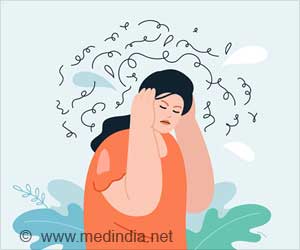- The Essentials of Forensic Medicine and Toxicology - KSN Reddy and OPMurty - (https://www.researchgate.net/publication/282075236_The_Essentials_of_Forensic_Medicine_and_Toxicology_-_KSN_Reddy_and_OPMurty)
- Forensic psychiatry: contemporary scope, challenges and controversies - (https://www.ncbi.nlm.nih.gov/pmc/articles/PMC1525122/)
- Forensic psychiatry in India: Past, present, and future - (https://www.ncbi.nlm.nih.gov/pmc/articles/PMC5282612/)
- Common Mental Health Disorders: Identification and Pathways to Care - (https://www.ncbi.nlm.nih.gov/books/NBK92254/)
- Mental disorders - (https://www.who.int/news-room/fact-sheets/detail/mental-disorders)
- Indian legal system and mental health - (https://www.ncbi.nlm.nih.gov/pmc/articles/PMC3705679/)
- Liability of the mentally ill and their insurers in negligence and other civil actions - (https://pubmed.ncbi.nlm.nih.gov/4073303/)
- Indian legal system and mental health - (https://www.ncbi.nlm.nih.gov/pmc/articles/PMC3705679/)
- Daniel McNaughton (1813-1865) - (https://www.ncbi.nlm.nih.gov/pmc/articles/PMC2902100/)
- From MNaghten to Currens, and beyond - (https://www.jstor.org/stable/3479161)
- The Federal and State Role in Mental Health - (https://www.mhanational.org/issues/federal-and-state-role-mental-health)
- The Mental Healthcare Act, 2017 - (https://main.mohfw.gov.in/sites/default/files/Mental%20Healthcare%20Act%2C%202017_0.pdf)
- Influence of the new mental health legislation in India - (https://pubmed.ncbi.nlm.nih.gov/34287412/)
- The Grand Challenge for Forensic Psychiatry - (https://www.frontiersin.org/journals/psychiatry/articles/10.3389/fpsyt.2011.00055/full)
- Forensic psychiatry in India: Past, present, and future - (https://www.ncbi.nlm.nih.gov/pmc/articles/PMC5282612/)
- The differences between forensic psychiatry and forensic psychology - (https://pubmed.ncbi.nlm.nih.gov/8364232/)
Introduction
Psychiatry is the branch of medical science which deals with diagnosis, and treatment of mental diseases, while Forensic Psychiatry applies this knowledge to the legal field. Disturbances in mental and emotional processes, as well as an inability to control behavior, are the hallmarks of mental disease, often known as unsoundness of mind(1✔ ✔Trusted Source
The Essentials of Forensic Medicine and Toxicology - KSN Reddy and OPMurty
Go to source).
Forensic Psychiatry, as defined by the American Board of Forensic Psychiatry and the American Academy of Psychiatry and Law, is a branch of Psychiatry where scientific and clinical expertise is applied to legal issues within legal contexts. It involves dealing with matters related to civil, criminal, correctional or legislative issues(3✔ ✔Trusted Source
Forensic psychiatry in India: Past, present, and future
Go to source).
The field of Forensic Psychiatry has progressed with novel approaches to treatment, modifications to the legal definition of insanity, and a better comprehension of the relationship between mental illness and criminal behavior. Another factor has been the evolution of public views on mental illness(2✔ ✔Trusted Source
Forensic psychiatry: contemporary scope, challenges and controversies
Go to source).
Psychiatric Disorders
A psychiatric disorder is when a person has significant problems with how they think, feel, or act. It often causes distress or trouble in day-to-day life. There are various psychiatric disorders like depression, generalized anxiety disorder, panic disorder, obsessive compulsive disorder, post-traumatic stress disorder, social anxiety disorder, phobia, schizophrenia, neuro-developmental disorder, etc(4✔ ✔Trusted Source
Common Mental Health Disorders: Identification and Pathways to Care
Go to source, 5✔ ✔Trusted Source
Mental disorders
Go to source).
Testamentary Capacity
As per the Indian Succession Act of 1925, a person of sound mind is eligible to make a will. However, making a “Will” is not allowed when a person is unable to understand due to intoxication, mental illness, or other reasons affecting their capacity(6✔ ✔Trusted Source
Indian legal system and mental health
Go to source).
Marriage and Divorce
The Hindu Marriage Act says that for a marriage to be valid, both partners should be mentally stable and agree to it. If one of them is mentally unstable, making them unsuitable for marriage, they can annul the marriage.
Additionally, they can choose to pursue divorce if one person is facing mental instablity, and living together becomes challenging. The Special Marriage Act has similar rules for all individuals.
In Muslim Law, a person with mental issue can marry with a guardian's approval and can seek divorce after 2 years of being not comfortable. Christians can get a divorce, if one person has a mental problem for at least 2 years. However, under Parsi law, mental illness is not a reason for divorce(6✔ ✔Trusted Source
Indian legal system and mental health
Go to source).
Civil Responsibility
If a person with mental illness engages in actions that harm others, they can be taken to court, just like anyone else. However, if their mental illness significantly impairs their awareness of their actions or ability to control them, they may not be held responsible. This is considered similar to situations where individuals commit wrongful acts due to unconsciousness or sudden health problem.
The rules about this are different in different places in which some areas are stricter than others. Even if the person is found responsible, their insurance might have to pay for the damage they caused, depending on what the insurance policy says. So, if someone gets hurt by a person with a mental illness, they might be able to sue them or their insurance(7✔ ✔Trusted Source
Liability of the mentally ill and their insurers in negligence and other civil actions
Go to source).
Criminal Responsibility
The Indian Penal Code deals (IPC) with circumstances in which an individual may not be aware of their conduct or that they are improper or illegal because of mental illness. Based on the McNaughten Rule, Section 84 of the IPC permits an insanity defence, but the party claiming damages must provide proof of their condition. If verified, they could be admitted to mental health facilities. With the approval of their guardian, acts carried out in good faith for the benefit of a mentally ill person are protected under Section 89 of IPC. According to Section 305 of IPC, there are severe consequences for encouraging or helping an insane person commit suicide, which can include life in prison or even death(8✔ ✔Trusted Source
Indian legal system and mental health
Go to source).
Various Rules Related to Forensic Psychiatry
McNaughten Rule
Section 84 of IPC deals with McNaughten rules which states that “Nothing is an offence which is done by a person who, at the time of doing it, by reason of unsoundness of mind, is incapable of knowing the nature of the act or that he is doing what is either wrong or contrary to the law(9✔ ✔Trusted Source
Daniel McNaughton (1813-1865)
Go to source).”
Durham Rule
“An accused person is not criminally responsible, if his unlawful act is the product of mental disease or mental defect(1✔ ✔Trusted Source
The Essentials of Forensic Medicine and Toxicology - KSN Reddy and OPMurty
Go to source).”
Curren’s Rule
“An accused person is not criminally responsible, if at the time of committing the act, he did not have the capacity to regulate his conduct to the requirements of the law, as a result of mental disease or defect(1✔ ✔Trusted Source
The Essentials of Forensic Medicine and Toxicology - KSN Reddy and OPMurty
Go to source, 10✔ ✔Trusted Source
From MNaghten to Currens, and beyond
Go to source).”
The Federal Rule
“An accused person is not criminally responsible if at the time of commission of the acts constituting the offence, the defendant, as a result of severe mental disease or defect, was unable to appreciate the nature and quality or the wrongfulness of his acts(1✔ ✔Trusted Source
The Essentials of Forensic Medicine and Toxicology - KSN Reddy and OPMurty
Go to source, 11✔ ✔Trusted Source
The Federal and State Role in Mental Health
Go to source).”
Mental Healthcare Act (MHCA)
India passed the Mental Healthcare Act (MHCA) in 2017 to replace the old Mental Health Act of 1987. The recent law aims to protect the rights of people with mental illnesses all over the process of healthcare and treatment. It states that mental illness is a serious condition that has a significant impact on how individuals think and behave. Some individuals are concerned that the law may force patients to stay in hospitals longer than necessary(12✔ ✔Trusted Source
The Mental Healthcare Act, 2017
Go to source, 13✔ ✔Trusted Source
Influence of the new mental health legislation in India
Go to source).

The law attempts to protect the rights of people suffering from mental illness by offering creative ideas such as treatment planning ahead of time and not penalizing those who attempt suicide. However, making it function effectively is difficult because there is little funding, and it fails to include the families who care for people with mental illnesses(12✔ ✔Trusted Source
The Mental Healthcare Act, 2017
Go to source, 13✔ ✔Trusted Source
Influence of the new mental health legislation in India
Go to source).










